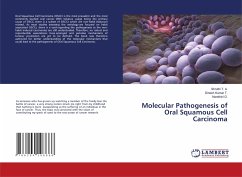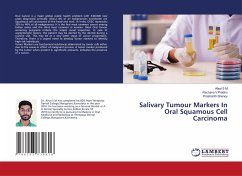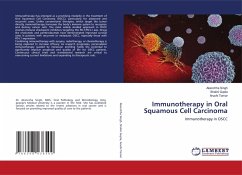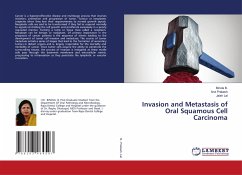
Molecular Pathogenesis of Oral Squamous Cell Carcinoma
A Detailed Analysis
Versandkostenfrei!
Versandfertig in 6-10 Tagen
40,99 €
inkl. MwSt.

PAYBACK Punkte
20 °P sammeln!
Oral cancer is the commonest cancer in India accounting for 50-70 % of total cancer mortality and accounts for highest incidence among Asian countries. Oral cancer is the sixth most common cancer worldwide. It predominantly affects anterior tongue, cheek, floor of mouth, retromolar area, gingiva or the buccal mucosa. Our understanding of the molecular basis of oral squamous carcinoma has increased rapidly over the past few years. Multiple genetic events that culminate in carcinogenesis include the activation of oncogenes and inactivation of tumour suppressor genes. This may increase our unders...
Oral cancer is the commonest cancer in India accounting for 50-70 % of total cancer mortality and accounts for highest incidence among Asian countries. Oral cancer is the sixth most common cancer worldwide. It predominantly affects anterior tongue, cheek, floor of mouth, retromolar area, gingiva or the buccal mucosa. Our understanding of the molecular basis of oral squamous carcinoma has increased rapidly over the past few years. Multiple genetic events that culminate in carcinogenesis include the activation of oncogenes and inactivation of tumour suppressor genes. This may increase our understanding of the molecular basis of these lesions and establish whether different cancer subtypes show different growth characteristics. This approach could ultimately lead to appropriate gene therapy.












